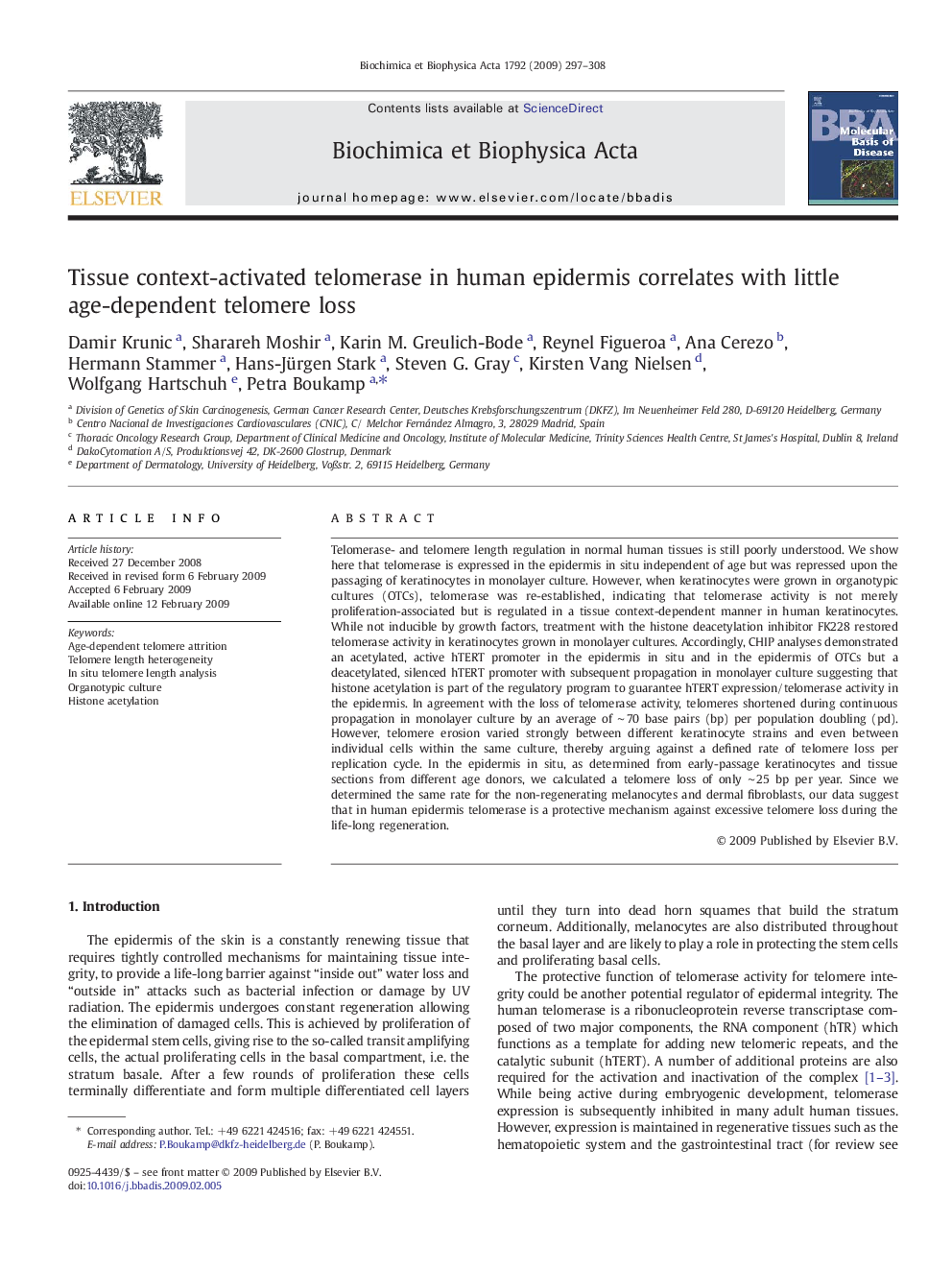| Article ID | Journal | Published Year | Pages | File Type |
|---|---|---|---|---|
| 8261962 | Biochimica et Biophysica Acta (BBA) - Molecular Basis of Disease | 2009 | 12 Pages |
Abstract
Telomerase- and telomere length regulation in normal human tissues is still poorly understood. We show here that telomerase is expressed in the epidermis in situ independent of age but was repressed upon the passaging of keratinocytes in monolayer culture. However, when keratinocytes were grown in organotypic cultures (OTCs), telomerase was re-established, indicating that telomerase activity is not merely proliferation-associated but is regulated in a tissue context-dependent manner in human keratinocytes. While not inducible by growth factors, treatment with the histone deacetylation inhibitor FK228 restored telomerase activity in keratinocytes grown in monolayer cultures. Accordingly, CHIP analyses demonstrated an acetylated, active hTERT promoter in the epidermis in situ and in the epidermis of OTCs but a deacetylated, silenced hTERT promoter with subsequent propagation in monolayer culture suggesting that histone acetylation is part of the regulatory program to guarantee hTERT expression/telomerase activity in the epidermis. In agreement with the loss of telomerase activity, telomeres shortened during continuous propagation in monolayer culture by an average of â¼Â 70 base pairs (bp) per population doubling (pd). However, telomere erosion varied strongly between different keratinocyte strains and even between individual cells within the same culture, thereby arguing against a defined rate of telomere loss per replication cycle. In the epidermis in situ, as determined from early-passage keratinocytes and tissue sections from different age donors, we calculated a telomere loss of only â¼Â 25 bp per year. Since we determined the same rate for the non-regenerating melanocytes and dermal fibroblasts, our data suggest that in human epidermis telomerase is a protective mechanism against excessive telomere loss during the life-long regeneration.
Related Topics
Life Sciences
Biochemistry, Genetics and Molecular Biology
Ageing
Authors
Damir Krunic, Sharareh Moshir, Karin M. Greulich-Bode, Reynel Figueroa, Ana Cerezo, Hermann Stammer, Hans-Jürgen Stark, Steven G. Gray, Kirsten Vang Nielsen, Wolfgang Hartschuh, Petra Boukamp,
